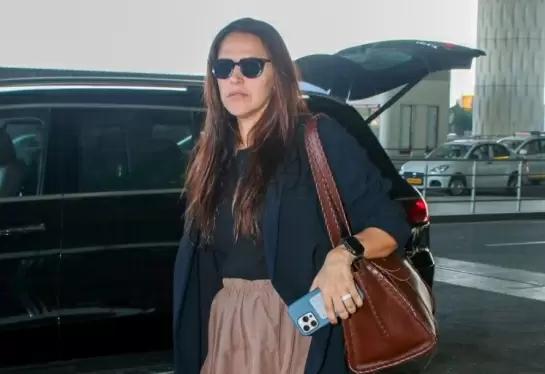Know your immune response post vaccination
06-October-2021
.webp)
Antibodies are proteins produced by the immune system to fight a disease. On exposure to a foreign body like bacteria or a virus, the body develops what is called the IgM antibodies. These are the first antibodies the body makes when it fights a new infection, are short term and may not be detectable after a few weeks of an infection. It is then followed by IgG antibodies, which provide a longer lasting immune protection. IgA also plays a crucial role in the immune defence of mucosal surfaces such as nasophryanx, lower respiratory tracts, etc., the first point of entry of SARS-CoV-2.
According to World Health Organisation (WHO), over 232 million Covid-19 cases have been reported, out of which India has officially reported 33 million cases (1). If we aim to bring the pandemic under control, we need to employ measures that go beyond social distancing and wearing a mask. These measures need to be supplemented by a strong vaccination program.
The Covid-19 vaccines help us develop immunity against the virus and its variants. They stimulate the immune system to create antibodies that fight the virus, thus preventing serious illness and death. According to WHO, the Covid-19 vaccine protects us from serious illness and death, but this protection from infection and transmission is not definite (2). How long the Covid-19 antibodies last after infection/ vaccination is yet to be determined.
One way to be sure of our immune response and to determine if one has developed antibodies, is through a reliable IgG quantitative antibody test. This test measures the level of IgG antibodies developed by the individual. As IgG antibodies last longer in the body, they are detectable for a longer duration of time and are more accurate.
IgG antibodies and what they say about immunity
A positive IgG antibody test would mean that the person was either previously infected by or was vaccinated for Covid-19 (3). A higher number of antibodies indicate a greater number of neutralizing antibodies. Neutralizing Antibodies are a different class of antibodies that prevent the interaction of virus and the host, thereby preventing the infection. Excellent correlation has been seen with IgG and neutralizing antibodies. Although developing antibodies does not guarantee we will not contract Covid-19, it does help us understand our individual vulnerabilities and subsequently helps us to be better prepared.
Choosing the right test is essential as some antibody tests will only detect antibodies from infection, not from Covid-19 vaccination. Consult your doctor to choose the right test. These tests could thus play a critical role in managing the pandemic by informing scientists and health authorities if sufficient individuals have developed a robust immune response against Covid-19.
Timing of the Test
Antibody tests should generally not be used to diagnose a current infection of Covid-19. An antibody test may not show if you have a current infection as it can take days to weeks after the infection for your body to make antibodies. For an accurate result post vaccination, the test should be performed at least 14 days after the second dose of vaccine. These tests are simple to take, they can be done through blood sample collection by an authorised pathology lab from the convenience of one's home. This makes testing for antibodies a safe way to determine if we have built up sufficient immune response against potentially serious or fatal Covid-19 infection (4).
References:
1. https://covid19.who.int/
2. https://www.who.int/news-room/q-a-detail/coronavirus-disease-(covid-19)-vaccines
3. https://onlinelibrary.wiley.com/doi/10.1002/jmv.27098
4. https://www.cdc.gov/coronavirus/2019-ncov/testing/serology-overview.html
5. https://www.ncbi.nlm.nih.gov/pmc/articles/PMC7245198/
6. https://www.jacionline.org/action/showPdf?pii=S0091-6749%2820%2931623-7 - IANS
Fintech Founder Srijan R. Shetty Shares How Speaking Kannada in Bengaluru Surprises Locals
Iran's Ayatollah Shirazi Declares Fatwa Against Trump, Netanyahu
Cocaine Racket Busted, Two Tamil Actors, Nigerian Woman Held
Junior Chidambaram Calls For Urban-Focused Political Outfit, Free Of Identity Politics
Uddhav and Raj Thackeray May Unite for Protest Against Hindi Imposition









